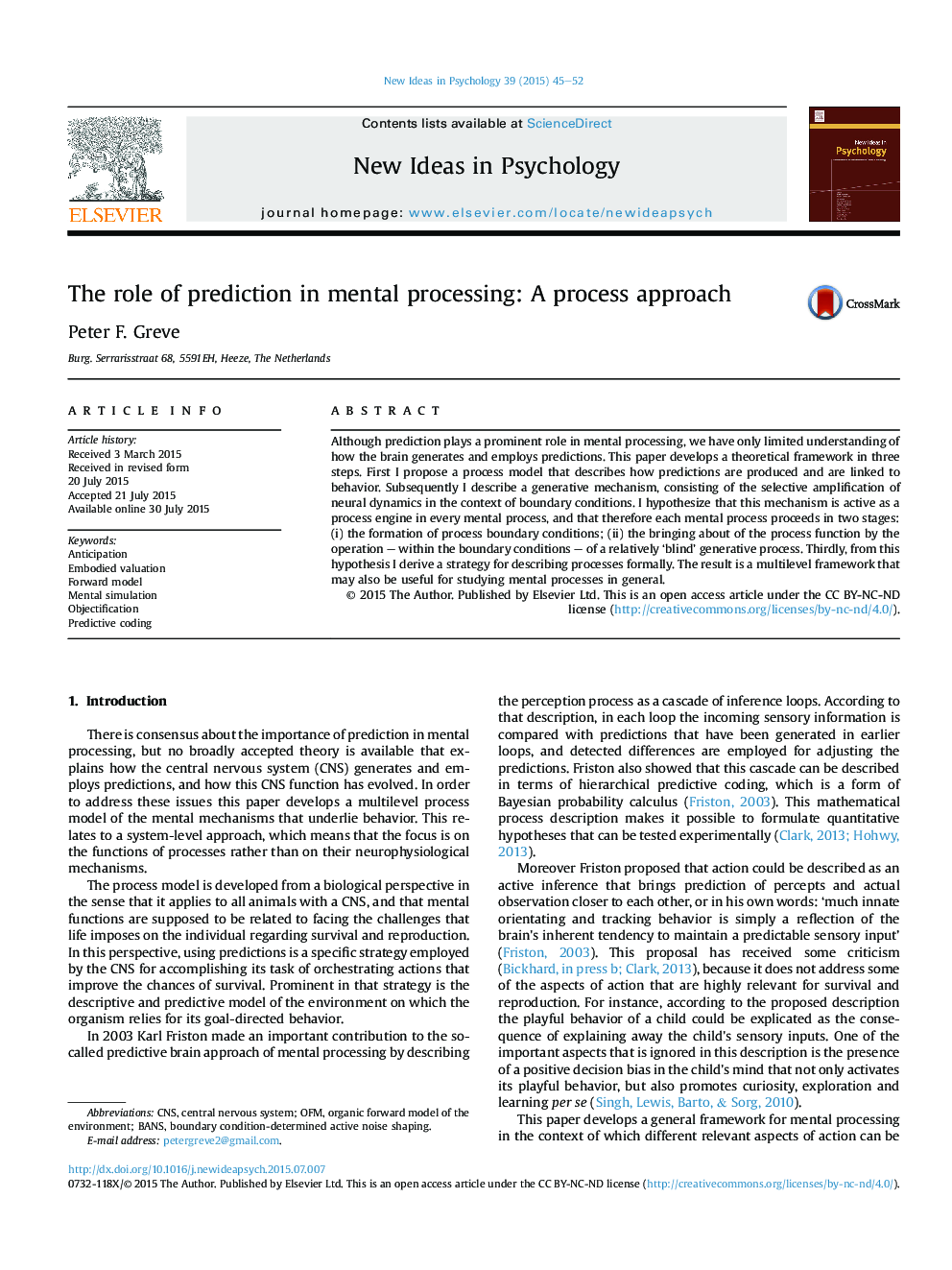| Article ID | Journal | Published Year | Pages | File Type |
|---|---|---|---|---|
| 6811029 | New Ideas in Psychology | 2015 | 8 Pages |
Abstract
Although prediction plays a prominent role in mental processing, we have only limited understanding of how the brain generates and employs predictions. This paper develops a theoretical framework in three steps. First I propose a process model that describes how predictions are produced and are linked to behavior. Subsequently I describe a generative mechanism, consisting of the selective amplification of neural dynamics in the context of boundary conditions. I hypothesize that this mechanism is active as a process engine in every mental process, and that therefore each mental process proceeds in two stages: (i) the formation of process boundary conditions; (ii) the bringing about of the process function by the operation - within the boundary conditions - of a relatively 'blind' generative process. Thirdly, from this hypothesis I derive a strategy for describing processes formally. The result is a multilevel framework that may also be useful for studying mental processes in general.
Keywords
Related Topics
Social Sciences and Humanities
Psychology
Developmental and Educational Psychology
Authors
Peter F. Greve,
